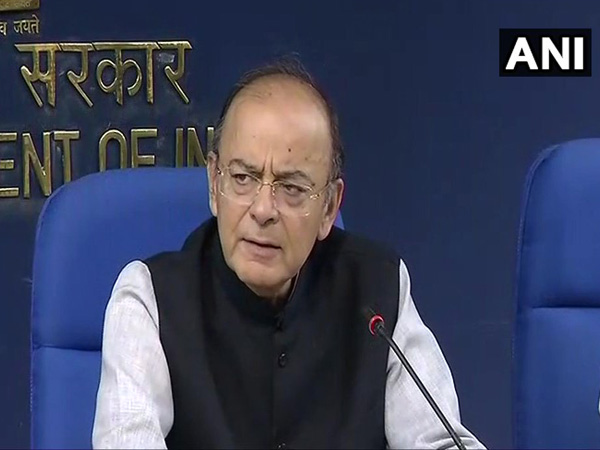New Delhi: Hailing NDA government’s policies on its fourth anniversary, BJP leader and Finance Minister Arun Jaitley on Saturday said India had transformed from being a part of the “fragile five” to the “bright spot” on the global economic scene under this regime and had established ‘scam-free governance’.
“The preceding 10 years of the UPA rule had unquestionably witnessed the most corrupt government since Independence,” said Jaitely in a Facebook post even while recovering from a kidney transplant in AIIMS, where he was shifted out of the ICU on Friday.
He added that Prime Minister Narendra Modi had created “transparent systems through legislative and institutional changes, which have given this country a scam-free governance.”
Jaitley said that to clean up the economy, India had to transform from a tax non-compliant society to a tax-compliant society. During Jaitley’s hospitalisation, Minister of Railways, Piyush Goyal, has been given additional charge of the finance ministry
“The enactment and implementation of the Goods and Services Tax, the impact of demonetisation, effective tax compliance are all steps against black money, steps which are formalising the Indian economy. The Insolvency and Bankruptcy Code has changed the lender-creditor relationship. The creditors no longer have to chase the debtors. If you cannot pay your creditors, you have to exit through a statutory mechanism.”
Taking a dig at the UPA government, he said: “During the UPA government, India had fallen off the global radar. In its initial years when the world economy was booming, India grew on the strength of global tailwinds. When the global situation became challenging, the UPA’s decisiveness and performance collapsed.”
The Current Account Deficit (CAD) saw an unprecedented 6.7 per cent deficit in the year 2012-13, he said adding that the NDA has consistently maintained a CAD of under 2 per cent on an annualised basis.
“The poor economic management was visible when under the UPA fiscal deficits remained alarmingly high. The government was spending more and earning less. We witnessed fiscal deficits of 5.8 per cent, 4.8 per cent and 4.4 per cent in the UPA’s last three years. Having inherited the mess, the NDA, year after year, has brought it down to 3.5 per cent and shall, this year, try and deliver a 3.3 percent fiscal deficit,” Jaitley said.
The minister pointed out that the UPA’s economic management was such that even when fiscal deficits were high, expenditure cuts of over Rs 1 lakh crores were done in order to make fiscal deficit optically look slightly better.
“Cut in expenditure means cut in growth. During the NDA years, revised estimates of expenditure were always been higher than Budget estimates. The UPA provided India in its last years an inflation figure upto 9 per cent and at one stage even crossed into double digits. The NDA has tried to contain inflation and on most occasions has remained within the target of 3 to 4 per cent,” Jaitley said.
Taking a direct dig at Rahul Gandhi, Jaitley said the “Congress President must remember that taxes don’t go into the pocket of the government. They go back to the people for better infrastructure, better social sector expenditure and poverty reduction programmes.”
Saying that Modi had institutionalised a system where discretion had been eliminated, Jaitley added: “Discretions lead to abuse of power because they can be misused. Allocations of contracts, natural resources, spectrum and other government largesse, which were being distributed through discretions, are now allocated through a market mechanism. Laws have been changed.”
He emphasized that leaders of the industry are no longer seen repeatedly visiting the South Block, the North Block or the Udyog Bhawan. Environmental clearance files don’t pile up. And Foreign Investment Promotion Board has been abolished.
Highlighting government’s focus in the social sector, Jaitley said the MUDRA Yojana has made cheaper credit available to the weak and the marginalised. The biggest beneficiaries of this had been women, SC/ST, minorities and other weaker sections.
“Rural roads with a hugely increased expenditure are a success story. That every village must be connected with road and electricity, affordable rural housing, toilets and gas connections in all homes, are intended to change the quality of life in villages,” he said.
The Crop Insurance Scheme and the government’s decision that farmers must get 50 per cent above cost are steps intended to eliminate agricultural distress, Jaitley said.
IANS

